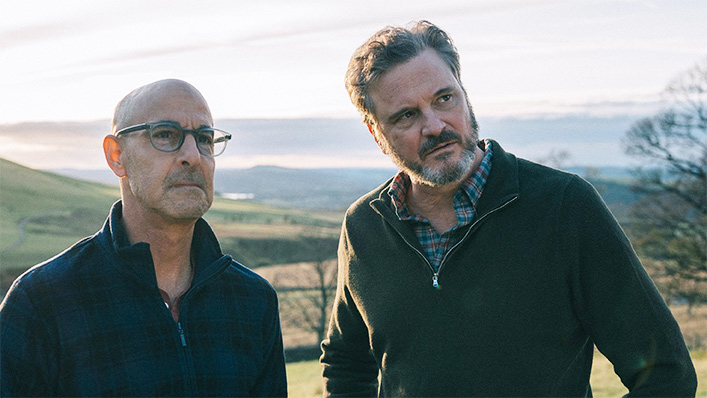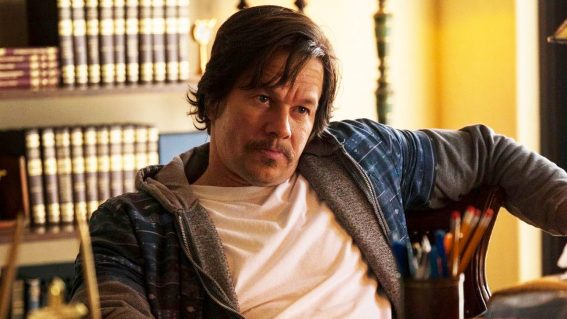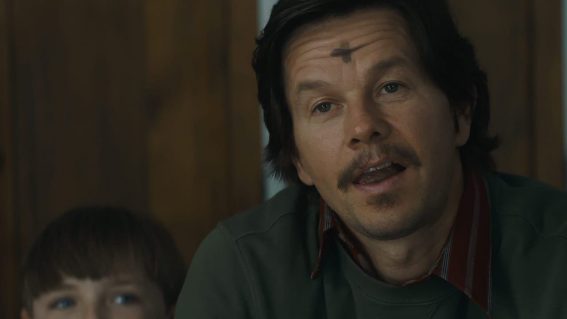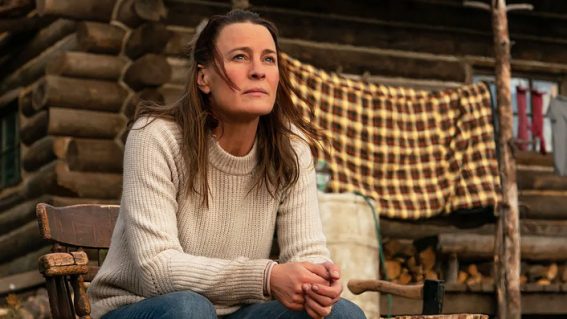Supernova is a tender and moving drama about partners facing up to mortality

With exemplary and finely tuned performances by Colin Firth and Stanley Tucci, Supernova is a tender drama about partners facing up to mortality, writes critic Craig Mathieson.
At the beginning of Supernova a shot of the night sky’s radiant mass of stars gives way to the consolatory close-up of one person’s hand atop another’s. The infinite becomes intimate, and that down-sizing sets the tone for Harry Macqueen’s feature, which positions Colin Firth and Stanley Tucci to deliver quietly wrenching performances as a couple whose happiness now has an end point.
It is a small film, but not precious, and the care with which it was made is as much about what the story accomplishes as how it never overreaches. The most wrenching moments—and there are several—are drawn from the back and forth of the central character’s lives; there’s barely a whit of egregious emotion or collusive plotting.

At first Sam (Firth) and Tusker (Tucci) talk around their reality, bantering and bickering as the pair—a concert pianist and a novelist respectively—take their camper van back into the British countryside. The London residents debate using the satellite navigation system and appreciate the van’s durability, all of which foreshadows the reality that Tusker has early on-set dementia and that increasingly his memory—and his mind itself—is starting to dissipate. The expatriate American writer knows what awaits him.
“I will forget who is doing the forgetting,” he tells friends, the reality having set in. A few brief scenes, sad but unflinching, make apparent what the near future holds.
Macqueen, an actor turned filmmaker, has concentrated Sam and Tusker’s long union in the present. Youthful nostalgia isn’t a factor, and apart from a reference to Margaret Thatcher’s discriminatory Section 28 law, introduced in Britain in 1988, the historic ramifications of being gay men don’t influence the storytelling.
The performances of Firth and Tucci make this distillation work: the former is stoically determined while the latter bristles. Not knowing what their dynamic previously was removes a layer of meaning, but the question of how to address Tusker’s disintegration gives Supernova a purpose: the two have divergent plans, and someone must give. Here love is both inspiring and difficult: Tusker knows Sam will care for him until the end, he just doesn’t think it’s fair to make him do that.
Supernova doesn’t have the wounding structure of The Father, the other film about dementia’s debilitating grip that is currently in cinemas, but the clear-eyed determination of what it sets out to do is a strength. Each exchange and celebration, every physical difficulty and unanswered question, propel the film towards a resolution that mostly earns its final emotional flourish.
When the unthinkable is thought about, everything between the two men is up for grabs. With his calm framing and eye for detail, Macqueen never wavers. The director, along with his two stars, makes the looming loss both genuine and sorrowful.

















